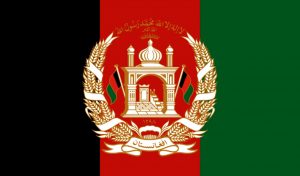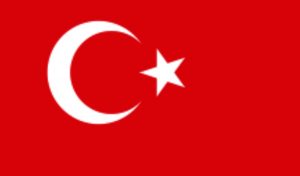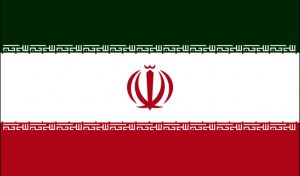Countries where christianity is banned: There are a wide variety of ways in which governments restrict religion around the globe. Especially authoritarian governments frequently stifle religious expression by making certain religion illegal. It can be challenging for people who grow up in communities where there is a church on virtually every block to conceptualize locations where there are no churches at all or where Christianity is banned. The truth is that following the teachings of Jesus Christ and practicing Christianity as a religion is illegal in some nations all over the globe in the modern era.
In fact, the practice of Christianity has been declared illegal in some nations. The following is a list of countries where christianity is banned around the world. In these countries it is against the law to follow Christian doctrine.
Recommended: Most Expensive Things In The World 2023
Top 10 Countries where christianity and the bible is banned
1. Afghanistan: Afghanistan is the first in our list of countries where Christianity is banned. Afghanistan received the second-worst ranking on the most current World Watch List compiled by Open Doors, an organization that raises awareness about the persecution of Christians around the world.

It is not feasible for a Christian to openly practice their faith in Afghanistan. Converts to Christianity are putting themselves in danger if anyone finds out about their new religion. These converts have essentially two choices available to them: either they flee the country or they risk being killed.
2. Mayotte: Mayotte consists of two small islands located in the Indian Ocean between Madagascar and Mozambique. The population of Mayotte is predominantly Muslim. Mayotte is a predominantly Muslim country in which the practice of Christianity is either forbidden or punishable by death.
If a Christian in Mayotte wants to avoid being killed by the local government, they will need to remain anonymous. If the authorities discover their real identity, they will put them to death.
Also see: Difference Between Reward and Incentive (With Examples)
3. Mauritania: Mauritania is located on the west coast of Africa, the number of Christians is rapidly declining due to the country’s harsh repression of their faith.
There are approximately 10,000 Christians in the region. It is unlawful to practice Christianity in Mauritania, which contributes to the country’s low population of Christians. In a country with a population of almost 4.3 million people, only 0.2% consider themselves to be Christians.
According to Open Doors’ World Watch List, this predominantly Muslim nation, Mauritania is at number twenty. In Mauritania, it’s impossible to gather openly as a Christian. This is because of government restrictions.
4. North Korea: North Korea is the only non-Muslim country on our list of countries where Christianity is banned.
North Korea brutally oppresses its resident Christians. Also, North Korea does not recognise any religion. Fewer than 2% of people in the population consider themselves Christians. North Korea has remained at the top of Open Doors’ World Watch List for the past two decades.

In North Korea, the penalty for being found to be a Christian is the execution penalty. If you are not immediately put to death, you will be taken to a labour centre and treated as a political criminal there. It is estimated that there are between 50,000 and 70,000 Christians being held captive there at the moment.
Also see: Differences Between Standard of Living and Cost of Living
5. Algeria: Algeria is a country located in northern Africa, and the number of Christians living there has decreased since 1970. (101,000 down to 72,400). This is because Christianity is prohibited over there.

Algeria and its commander are notorious for their intolerance towards Christians; as a result, the practise of Christianity is punishable by death in this nation. On the World Watch List compiled by Open Doors, Algeria is ranked the 24th worst country in terms of religious intolerance brought about by members of the family, community leaders, and government officials.
6. Western Sahara: Morocco and the Sahrawi Arab democratic republic share the western Sahara, a contested territory in the northwest corner of Africa. The number of people who identify as Christians in that region has dropped dramatically. In 1970, approximately 41% of the population of Western Sahara identified as Christian.
Christians make up less than 0.1% of the world’s population at the present time. According to the World Watch List, Morocco is currently ranked 27th in terms of the severity of the discrimination faced by the country’s small Christian population. Christian converts from Islam run the risk of losing their inheritance rights and even their offspring if they do so.
Recommended: How To Become A Billionaire Before 30: 10 Tips
7. Somalia: There have been substantial increases in the number of Christians in many parts of eastern Africa; in some nations, the number of Christians is increasing by more than 90 percent.

However, this is not the case in Somalia. Looking back at 50 years ago, there was already a relatively small Christian population, but since then, it has become even smaller. Christians make up less than 0.1 percent of the world’s population currently. This is due to the fact that Christianity is prohibited in this nation.
On Open Doors’ World Watch List, Somalia comes in at number three. In Somalia, islam is considered to be an essential part of Somali identity. Just the suspicion that one has converted to Christianity is considered to be a warrant for one’s execution.
8. Turkey: Christians made up less than one percent of Turkey’s population in 1970, and since then, their numbers have diminished not only numerically but also as a percentage of the country’s overall population.

During the same time period that Turkey’s population increased from 35 million to more than 80 million, the number of Christians decreased from 290,000 to 178,000, which is equivalent to 0.2% of the present population.
Open doors ranks Turkey in the 25th position for persecution. In Turkey, religious nationalism is very powerful and on the rise, which puts a significant amount of pressure on the country’s Christian population.
Additionally, the inclusion of an electronic chip in people’s identification cards that records their religious affiliation makes it simpler to discriminate against Christians and persecute them if found.
Also see: Advantages and Disadvantages of Being an Entrepreneur
9. Yemen: There are only 0.2 percent of people who follow the Christian religion. Yemen was home to approximately 1,700 Christians in 1970. However, being a Christian in Yemen is a punishable offense in today’s society.The Yemeni government, along with Islamic extremists and tribes, threatens the lives of anyone who converts to Christianity, earning the country the seventh spot on the list compiled by Open Doors.
The majority of Yemen’s Christians choose to make their faith a private matter. Leaving Islam is against the law, and the government considers every Yemeni to be a Muslim.
10. Iran: A little more than 300,000 people out of a total population of 81 million are called Christians in Iran, a country where the Christian population has scarcely grown in the past half century.

In this country, less than half of one percent of the population identifies as followers of Jesus Christ. Converting Muslims to Christianity is viewed by the government of Iran as a plot by Western nations to undermine Iran’s Islamic authority. In Iran, Christians who have been arrested for their religion are frequently transferred to Evin Prison, also referred to as the “torture factory” of the country.
Recommended: Most Corrupt Countries In Africa
Conclusion
As you can see, the countries listed above are the countries where Christianity is banned. Although the countries mentioned above are not the only ones in which Christians are mistreated, they are the ones in which the Christian religion faces the greatest amount of hostility.

Edeh Samuel Chukwuemeka, ACMC, is a lawyer and a certified mediator/conciliator in Nigeria. He is also a developer with knowledge in various programming languages. Samuel is determined to leverage his skills in technology, SEO, and legal practice to revolutionize the legal profession worldwide by creating web and mobile applications that simplify legal research. Sam is also passionate about educating and providing valuable information to people.